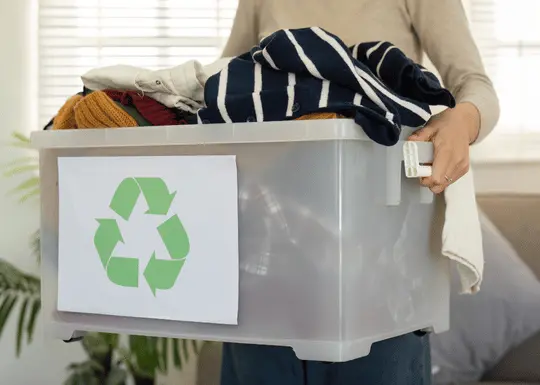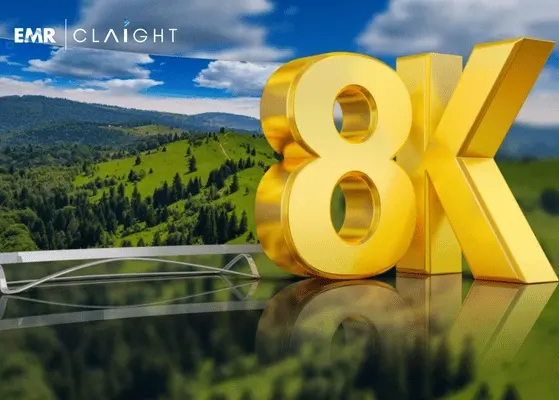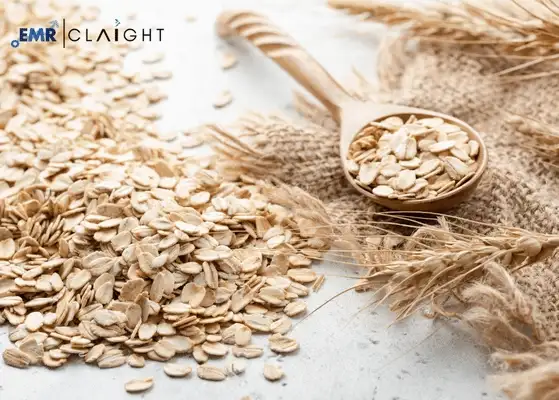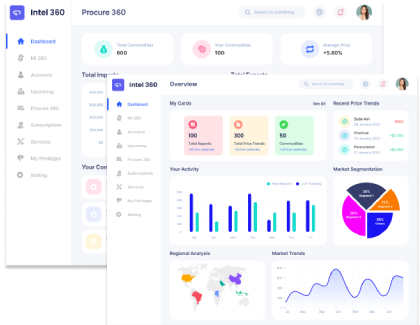The global textile recycling market reached a value of around USD 5.90 billion in 2024. The market is projected to grow at a CAGR of 3.10% in the forecast period of 2025-2034 to reach around USD 7.75 billion by 2034. As per the analysis by Expert Market Research, the market is expected to be driven by rising environmental awareness and the popularity of fast fashion.
Around 92 million tonnes of textile waste is generated annually across the globe. Approximately 85% of this waste ends up in the landfills. Americans alone generate around 17 million tons of annual textile waste. The expansion of the fast fashion market is contributing to the generation of this waste. Fast fashion involves the production and use of low-quality and low-priced garments. It contributes to around 10% of all global carbon emissions.
The rising environmental impact of textile waste presents an opportunity for textile recycling to give a piece of fabric and clothing a new use. Recycled fabrics are often used as inputs to make rags/wiping clothes for the construction, and manufacturing markets. Textile recycling operations allow the recycling of nearly all clothing, shoes, and other fabrics and limit the energy and water-intensive process of producing new fabrics.
Technological advancement is enhancing the efficiency and simplifying the recycling of textiles, aiding the textile recycling market growth. For instance, the use of automated textile waste sorting technology helps recyclers identify and separate the different materials in textile waste. Cameras and sensors deployed in this technology automatically sort textiles by their type, colour, and quality.
Latest Updates on Top Textile Recycling Companies:
November 2024: In preparation for its first large-scale textile recycling facility, United States-based textile recycling pioneer Circ placed an engineering order with international technology group Andritz. Cotton and polyester are expected to be recovered from mixed textile waste for the first time by this plant.
November 2024: Nouvelles Fibres Textiles (NFT), a French company that specializes in the recovery of end-of-life textiles, and Reju, an innovative textile-to-textile regeneration company, announced a partnership on the sourcing and recycling of textile waste to help France develop a circular economy. In order to recycle and produce regenerated Reju PolyesterTM, NFT is expected to provide Reju with secondary raw materials made from old or abandoned waste textiles.
June 2024: "Project Extra Life" was started by ReCircle, a clean-tech resource recovery firm based in Mumbai, to address the accumulation of textile scrap in India and create a more sustainable model. As part of Project Extra Life, ReCircle has added a circular textile scrap management vertical to its current waste management offerings. Over the course of the upcoming year, the company hopes to gather, sort, and sell at least 570 metric tons of textile scrap.
January 2024: BASF and Inditex reported a significant advancement in their initiatives to increase textile sector recyclability. BASF offered the first circular solution for nylon clothing created entirely from textile waste with the introduction of loopamid, a polyamide 6 (PA6, commonly referred to as nylon 6), which is made from 100% textile waste.
Highlights of the Global Fashion Market Waste Production
- Around 100 billion garments are produced by the fashion sector annually. The sector also generates around 92 million tons of clothing waste.
- Only 20% of textiles are collected for recycling or reuse across the globe.
- Almost 60% of all clothing material is plastic and involves nylon, acrylic, and polyester synthetic fibres.
- Textile production generates 42 million tons of plastic waste per year.
- Additionally, the footwear and garment sectors combined account for 8% of global greenhouse gas emissions.
Top 10 Textile Recycling Companies: Best Brands
1. Boer Group Recycling Solutions
| Headquarters: |
Dordrecht, Netherlands |
| Establishment: |
2015 |
| Website: |
https://boergroup-recyclingsolutions.com/ |
Boer Group Recycling Solutions is a part of Boer Group engaged in the collecting, sorting, and preparation of textiles, worn clothing, and shoes for reuse. Boer Group Recycling Solutions conducts operations in the Netherlands and Germany. The parent company sorts around 112,5 million kg of used textiles annually. The company uses advanced recycling infrastructure based on automated sorting and the preparation of textile waste.
2. Lenzing AG
| Headquarters: |
Lenzing, Austria |
| Establishment: |
1890 |
| Website: |
https://www.lenzing.com/ |
Lenzing AG is a producer of fibres for textiles. In 2021, Lenzing and Södra, cooperated to develop a solution to handle the large amounts of textile waste generated by consumers and the industrial sector. The companies jointly developed OnceMore pulp from recycled textile waste. Lenzing uses this pulp as a raw material to produce its TENCEL REFIBRA speciali ty fibres. The company aims at processing around 25,000 tons of textile waste annually by 2025.
3. Patagonia, Inc.
| Headquarters: |
California, United States |
| Establishment: |
1973 |
| Website: |
https://www.patagonia.com/ |
Patagonia uses chemical recycling processes to recycle synthetic materials, including polyester, nylon, and ECONYL®, as well as natural fibres such as REFIBRA lyocell, made from wood and recycled cotton. The company also aims to use only recycled materials in the garments it produces and is continuously supporting the development of new chemical recycling technologies.
4. Procotex Corporation
| Headquarters: |
Mouscron, Belgium |
| Establishment: |
1970 |
| Website: |
https://en.procotex.com/ |
Procotex Corporation is a producer of sustainable recycled with subsidiaries in Lithuania, Turkey, and France. The company recycles natural, synthetic, and technical textile waste and is a global sustainable recycled fibre supplier for various, markets. The company’s synthetic recycled fibres include, 100% PP fibres, SOILTEX, and other fibres, while its technical recycled fibres, include recycled carbon, recycled aramid fibres, and other technical fibres.
5. Unifi, Inc.
| Headquarters: |
North Carolina, United States |
| Establishment: |
1971 |
| Website: |
http://www.unifi.com |
Unifi, Inc. is engaged in textile-to-textile recycling and transforming post-consumer plastics into sustainable products. Through REPREVE, UNIFI's proprietary technologies, UNIFI has transformed over 35 billion plastic bottles into recycled fibre for new apparel, home goods, and footwear. Brands using the company’s REPREVE technology include Levis, Nike, and The North Face.
6. H&M Hennes & Mauritz AB
| Headquarters: |
Stockholm, Sweden |
| Establishment: |
1947 |
| Website: |
https://hmgroup.com |
H&M Hennes & Mauritz AB is a global fashion and design company. It owns over 4,000 stores in more than 70 markets. Additionally, it sells its products online in 60 markets. The companies Garment Collecting programme is aimed at recycling textiles. Through this program, the company keeps recycling boxes in its stores worldwide. These boxes allow consumers to hand in their unwanted clothes or textiles of any brand for recycling.
7. Martex Fiber
| Headquarters: |
North Carolina, United States |
| Establishment: |
1975 |
| Website: |
https://www.martexfiber.com/ |
Martex Fiber is actively engaged in textile recycling in North America. The company provides the highest quality textile waste management services to textile mills in North and Central America and the Caribbean. Martex Fiber’s innovative 360 textile recycling process provides complete recycling of textile waste. The process ensures the recycling of textile waste, irrespective of its stage of manufacturing or end-use.
8. Textile Recycling International
| Headquarters: |
Bilston, United Kingdom |
| Establishment: |
2017 |
| Website: |
https://t-r-i.co.uk/ |
Textile Recycling International (TRI) is Europe’s largest collector and sorter of used textiles, clothing, and shoes. The TRI Group collects, processes, reuses, and recycles over 400 million items across four plants located throughout the mainland United Kingdom and in Northern Ireland. Textile Recycling International is the Group company for leading textile recyclers, namely, JMP Wilcox, Nathan’s Wastesavers, SWD Premier Clothing Exports, and Cookstown Textile Recyclers.
9. Ecotex Textilverwertung & Handel GmbH
| Headquarters: |
Wuppertal, Germany |
| Website: |
https://ecotexgroup.com/en/ |
Ecotex Textilverwertung & Handel GmbH processes and recycles over 8,000 tons of textiles, clothing, footwear, and secondary textile materials from industry, households, and municipalities per year. The company cooperates with charitable associations, textile recycling companies, and international contractors and clients from Europe, Africa, and Asia for textile recycling. The company’s subsidiaries include Ecotex Poland and Ecotex Germany.
10. Grasim Industries Limited (Birla Cellulose)
| Headquarters: |
Mumbai, India |
| Establishment: |
1947 |
| Website: |
https://www.birlacellulose.com/ |
Grasim Industries Limited (Birla Cellulose) is a manufacturer of sustainable viscose staple fibre (VSF) derived from renewable sources, including wood pulp and agricultural residues. The company is also engaged in the mechanical recycling of textile waste to produce high-quality and sustainable yarn. Birla Cellulose transforms textile waste into a uniform blend with Birla Viscose fibres including VSF, Birla Modal, Reviva, Excel, and Dope Dyed.




















Share